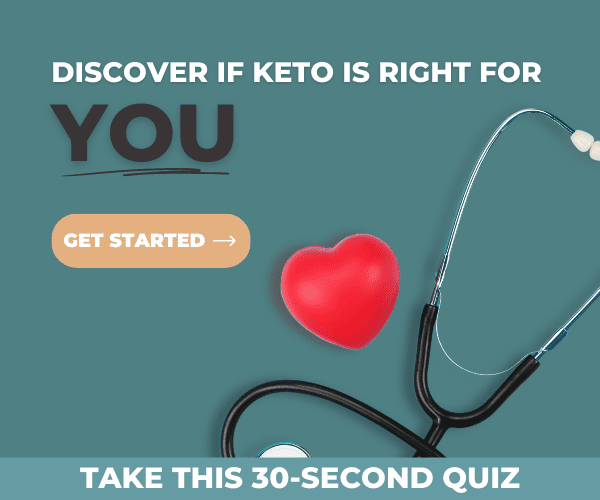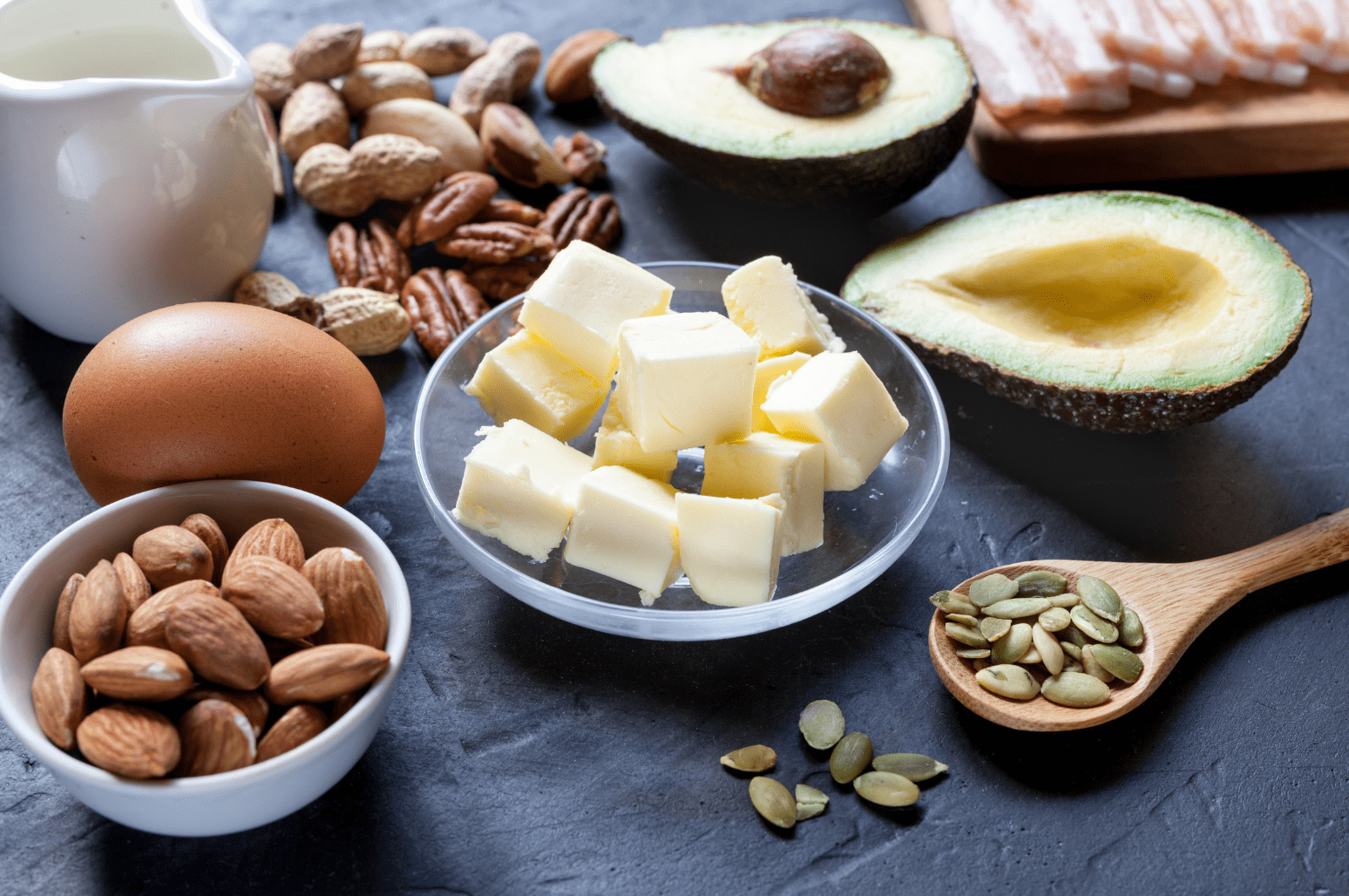
Dragging yourself through the day while daydreaming about the softness of your bed and pillow is no fun. If you have to peel yourself off your couch or bed, you might wonder why you have such low energy levels. If you’re following a ketogenic diet, several contributing factors could make you tired. This doesn’t mean you’re doing anything wrong or that the beneficial, evidence-backed ketogenic diet isn’t right for you. There are steps you can take to revitalize. This article looks at the reasons for low energy on keto and what you can do about them.
Why Do I Have Low Energy on Keto?
Here are some of the reasons why you might feel fatigued on keto.
You’re Dehydrated
With all this talk about food and what you should and shouldn’t eat, drinking enough water might fade into the background. Many people aren’t drinking enough water throughout the day. When you’re on keto and not eating all those carbs, there’s less need for the insulin hormone. Insulin stores sugar in your cells for later use, but it also instructs your kidneys to hold onto electrolytes like magnesium, sodium, and potassium. Basically, when your insulin levels and need for insulin drop on keto, your body gets rid of more water and electrolytes, so you may need to replenish water and electrolytes to feel hydrated and energized. Dehydration contributes to brain fog, muscle cramps, fatigue, and more. [1]
The solution:
- Drink more water and take electrolytes when needed
You’re Not Eating Enough Calories
On keto, you feel less hungry and your metabolism is higher, which helps you burn more calories. This is one of the reasons why this way of eating is so successful for weight loss and improving metabolic syndrome. [2]
However, you risk feeling lackluster and exhausted if you aren’t eating enough calories. Calories and nutrients from your food provide you with the energy you need to survive and thrive. Undereating can compromise your body’s production of thyroid hormones and energy hormones and negatively impact your metabolism over time. [3]
The solution:
- Eat more calories
- Make sure you eat until you feel full
You’re Eating Poor-Quality Food (Dirty Keto)
Processed keto junk food with artificial ingredients and sweeteners certainly won’t have the same effect on your body and metabolism as natural, unprocessed whole foods. Keto junk food might fit into your macros, but it may not make you feel your best over time. You might run into vitamin and mineral deficiencies and other issues that deplete your energy if you aren’t eating enough nutrient-dense foods.

You’re Eating Poor-Quality Food (Dirty Keto)
Processed keto junk food with artificial ingredients and sweeteners certainly won’t have the same effect on your body and metabolism as natural, unprocessed whole foods. Keto junk food might fit into your macros, but it may not make you feel your best over time. You might run into vitamin and mineral deficiencies and other issues that deplete your energy if you aren’t eating enough nutrient-dense foods.
The solution:
- Choose better quality foods
- Map the bulk of your diet around natural, whole foods like unprocessed meats, fish, veggies, low-carb fruits, nuts, seeds, and healthy fats (coconut oil, olive oil, etc.)
You’re Dealing with the Keto Flu
The keto flu refers to the symptoms of fatigue, muscle aches, and grogginess that some people feel when switching to ketosis. It might take a few days or longer for your metabolism to change from primarily using sugar for fuel to burning fat instead. As your metabolism adapts, these symptoms can crop up. The good news is that keto flu typically only lasts for the first week. Check out our informative article on keto flu for information on diminishing or preventing these symptoms.
The solution:
- Take electrolytes
- Exercise and increase your water intake
- Consume mineral-rich foods like avocados and berries
- Reduce your carb count more gradually and slow down your transition into ketosis to give your body more time to adjust
You Need to Look at Your Carb Count
Low energy on keto may be a sign that you need to play around with your daily carb count to determine the right balance of macros and what feels best for you. A keto diet typically involves fewer than 50 grams of net carbs daily. Some keto dieters do better with a little more carbs, and others with less. Your metabolism will need time to adjust and become fat-adapted. Try adding a little more carbs and see how you feel.
The solution:
- Play around with your carb count and macros to find the right balance
- If you’re more tired in the morning, eat a big protein-packed breakfast
You’re Not Eating Enough Healthy Fats

Figuring out the right macros for your body takes trial and error, and not eating enough fat is one error many keto dieters run into. You need dietary fat to give you lasting energy and help you build your cells.
Your body can’t create these healthy fats, so you have to obtain them from your diet. You risk feeling hungry and tired if you aren’t eating enough satiating fats.
The solution:
- Eat plenty of healthy fats from a range of keto sources, such as coconut oil and milk, nut milk, meats, fish, nuts, seeds, and olive oil.
You’re Overexercising
You might run out of energy working out on keto, especially if you’re pushing yourself too hard and you aren’t getting enough electrolytes, water, and healthy fats. Exercise is a healthy addition to your lifestyle, but overdoing it can put too much strain and pressure on your body and metabolism, especially if you are new to keto.
The solution:
- Avoid overexercising
- Map your carbs around your workout to give you an energy boost
- Consume plenty of healthy fats
- Experiment to find the best time of the day to exercise and the best types of exercise for your body
Additional Tips for Boosting Energy
To increase your energy levels on keto, you can also try:
- Allocating more time to rest and reset
- Stress-relief techniques and practices, such as yoga, meditation, and fun times with friends and family
Adding keto-friendly supplements, like melatonin (the sleep hormone), ketone esters, or MCT oil to ramp up your fat intake
References
Pross, N., Demazieres, A., Girard, N., Barnouin, R., Santoro, F., Chevillotte, E., Klein, A., & Le Bellego, L. (2013). Influence of progressive fluid restriction on mood and physiological markers of dehydration in women. Br J Nutr, DOI: 10.1017/S0007114512001080
Gibson, A. A., Seimon, R. V., Lee, C. M. Y., Ayre, J., Franklin, J…Sainsbury, A. (2015). Do ketogenic diets really suppress appetite? A systematic review and meta-analysis. Behavior / Etiology, DOI: 10.1111/obr.12230
Agnihothri, R. V., Courville, A. B., Linderman, J. D., Smith, S., Brychta, R., Remaley, A., Chen, K. Y., Simchowitz, L., & Celi, F. S. (2014). Moderate weight loss is sufficient to affect thyroid hormone homeostasis and inhibit its peripheral conversion. Thyroid, DOI: 10.1089/thy.2013.0055










